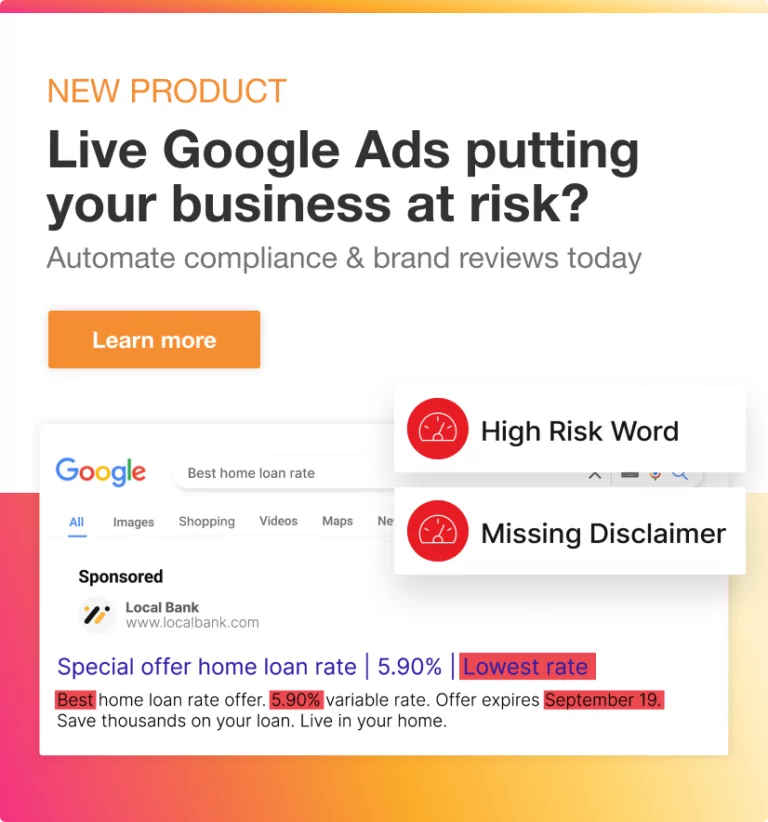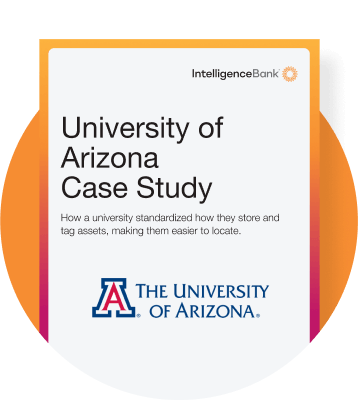Marketers juggle a lot, often managing projects across a patchwork of disconnected tools — or worse, email. Lately, the task is being made that much harder due to increased content volumes, regulatory scrutiny and shorter deadlines. This is driving a trend in Marketers rationalizing their tech stacks in favor of a unified platform to anchor workflow management.
These platforms use AI and automation to integrate campaign planning, approvals, compliance, digital assets and analytics into a single ecosystem to streamline marketing operations within one collaboration tool.
New tech in this space is emerging so rapidly, so we’ve collated the top trends hitting marketing software and project management. We explore what they mean for the industry, and how these advancements are paving the way forward to simplify complex projects.
First, What Is Marketing Workflow Management?
Marketing workflow management is the diligent coordination of tasks, people, and approvals to traffic marketing material from brief to launch. When teams work in fragmented, siloed systems, a lack of clear oversight can create cascading effects that chew time and jeopardize project deliverables.
A centralized repository helps ensure traceable input early in the process, reducing bottlenecks and keeping project goals, stakeholders, and milestones up to date. Managing the marketing process in one place lets marketing teams move faster, with the granularity needed to meet today’s challenges head-on.
What Functions Does Marketing Workflow Management Perform?

What Are The Top Trends in Marketing Project Management?
Marketing teams now face tighter deadlines, stricter regulations, and higher content demands. This intensifies the pressure to build coherent, yet flexible, processes. Trends in marketing workflow software are driven by this need for efficiency.
AI integration, hybrid methodologies, and real-time collaboration are emerging to help marketers stay agile while maintaining control. These innovations not only simplify complex projects but also foster transparency, enabling teams to meet demands with precision. Marketing management trends are about leveraging technology to centralize workflows and nurture collaboration across teams.
Software and tech trends
Marketing project management software is becoming a central nervous system for campaigns, alleviating the central nervous systems of actual marketers by aligning strategy, execution, and performance analytics for more streamlined results. Here’s what you can expect to see:
The influence of Artificial Intelligence (AI) keeps growing
Predictive or generative? Doesn’t matter. In terms of both project production and workflow management, marketing professionals are tapping into AI to polish and refine almost every aspect of project management. Here’s how:
Predictive:
In the past, marketing teams leaned into experience and instinct to make decisions. Marketing is increasingly becoming a science due to the volume of data available to help predict consumer behaviors, movements, and trends. Predictive AI enables a data-driven approach that minimizes uncertainty.
AI algorithms process large data sets and generate reports that help analyse a campaign’s timelines. It highlights efficient and inefficient processes across a project’s lifecycle — including lags and constraints. These insights support project managers in scheduling, resource allocation, and budgeting. While 2024 marked the dawn of AI integration in marketing projects and workflow management, 2025 will see more brands lean in with greater confidence and capitalize on the distinct advantages of predictive AI.
Generative:
While it’s no longer headlining news, generative AI will continue staking its claim as a marketing professional’s right-hand helper, automating tedious tasks, supporting ideation, and streamlining asset production phases. That said, it’s not going to take over completely. With some extra AI muscle, marketers can refine workflows and focus on creative content strategy instead.
Marketing project management software will continue to leverage automated and semi-automated production processes. Why? Because when you’re crunching through creative and development phases faster, real-time status updates, approvals, and communications on the same platform provide the centralized collaboration required to push projects over the finish line sooner.
Trends in workflow and approach
Marketing teams need methodologies that flex to their needs rather than forcing rigid structures. As project complexity grows, hybrid approaches and improved remote collaboration redefine how teams stay efficient without sacrificing agility.
Hybrid methodologies blend the best of Agile and Waterfall
Gone are the days of relying on a single, rigid project management process. Today, marketing teams can customize workflows to fit their needs — whether that’s Agile, Waterfall, or a hybrid approach. While structured approaches are still common, their popularity has decreased by 24% since 2020, according to a PMI study. 76% and 73% of respondents expect an increase in agile and hybrid methods, respectively, over the next five years. Here’s why:
When delivering a marketing campaign, missing deadlines can derail the entire project. Therefore, marketers still rely on some level of structure to keep things on track. But a creative team also needs breathing room. Marketing workflow software that can adapt to diverging needs across teams and partnerships supports brands in thinking bigger as they strategize campaigns.
Enhanced remote and hybrid collaboration builds
As hybrid working arrangements continue to be the norm, marketing project management software must support collaboration between in-house, remote, and hybrid teams. The focus is on building a culture of transparency and accountability. To achieve this, marketers need centralized workflows that streamline operations for tracking project milestones, record keeping, and collaboration.
Marketing project management software provides visibility into project timelines, approvals, and updates for all stakeholders. It also integrates with platforms like Adobe Creative Cloud to create breezy asset sharing — from uploading to distribution. With coherent workflows, teams can scale productivity and achieve better project outcomes.
Client-centric, transparent project management systems take precedence
Brands need to keep partners on the same page throughout the production processes — not just at the milestones. Providing transparency into ongoing projects and allowing for meaningful feedback in real-time creates a two-way communication channel that agencies and freelancers are increasingly accustomed to.
Empowering real-time feedback leads to fewer surprises and less back-and-forth motion. This, ultimately, saves time. Marketing work management tools that offer a window into the operational whats, whys, and hows will help foster shared understanding, moving multiple projects forward faster.
Marketing trends
Marketing trends in 2025 refer more to how brands think than what they do. The shift toward hyper-personalization, real-time engagement, and predictive content strategies redefines how teams approach execution.
Hyper-personalization raises the bar
Consumers now expect brands to anticipate their wants at every touchpoint — sometimes before they even do. In 2025, hyper-personalization isn’t just a common thread in successful marketing strategies; it’s a distinct advantage. AI-driven insights keep messaging consistent across every platform. Companies that fail to adapt risk delivering out-of-date or incorrect messaging, which can trigger disengagement. By staying diligent in tracking consumer behavior, brands are better positioned to forge experiences that feel tailored, relevant, and instant in an era where one-size-fits-all marketing is dead.
Omnichannel engagement becomes essential
Consumers swing between social, email, apps, and in-store experiences, expecting brands to keep pace. This means fragmented campaigns can distort messaging and erode brand trust. Marketing project management software helps marketers stay consistent, reviewing and streamlining campaign execution — and even updating assets across multiple channels in one click. The cascading effects of a well-integrated strategy lead to better engagement and increased conversions. Relevance is fleeting, so companies must shift from a reactive to a proactive stance to avoid being caught off-guard.
How Do You Choose Project Management Software?
Marketing project management software comes in all shapes and sizes, catering to the dynamic nature of a marketing team’s job. So, when selecting the right tools for your projects, how do you know software makes the cut? As you evaluate vendors, consider the following questions:
What are we looking for in reliable, functional software?
Marketing teams have unique needs depending on their goals, existing processes, and industries. For instance, in finance Compliance and Legal play a non-negotiable role in marketing. The idea is to consider your team’s needs and find a platform that caters to them. Consider the following:
- Consistency: The software should ensure marketing operations remain consistent, alleviating fragmented workflows and misalignment across teams.
- Reliability: It’s not just about the uptime. While software downtime is disruptive, a platform’s ability to move with evolving marketing demands is just as crucial. Can the platform scale as your team grows?
- Transparency and accountability: A strong platform provides early and continuous collaboration, allowing teams to track decisions, changes, and approvals.
- Contingency planning: A diligent project management system proactively identifies risks, eliminating unverifiable assumptions that could lead to delays or missed deadlines. Analytics should back fact-based decision-making, rather than gut feeling.
- Long-term solution: Many platforms claim to be eye-opening innovations but fail to deliver past the initial hype. The best project management software delivers scalable benefits like automation, streamlined approvals, and scalable collaboration.
How much do we value support and service?
A platform’s functionality is critical. But, it can mean little without ongoing support when things go awry. A good provider will set you up with software that’s compatible with your frameworks, and ensure it’s working effectively in the long haul. So, consider reviewing vendor responsiveness, troubleshooting capabilities, and training resources.
Look for a provider offering proactive guidance, rather than reactive fixes, to better position you for success.
Do we want all of our project management tasks in one place?
Grouping all tasks, communications, and deadlines in one space is a dream. What do you need to make it happen? Consider how heavily your current and desired workflow relies on visibility, trust, collaboration, and accountability. Are communications, project timelines, and deliverables handled on the same or different channels, and how does this impact productivity?
To answer this question, it may pay to look at the broader processes that make up your Marketing team workflows. If your team is already using a suite of tools, software that lacks integration may disrupt your workflow efficiency rather than enhance it. For instance, if your team primarily works with the Adobe workfront, could integrations with Adobe Creative Cloud, MS Office, or Shopify solve primary challenges in your processes?
What does “user-friendly” mean to us?
The term “user-friendly” is subjective — what works for a tech-savvy team may be frustrating and complex for another. Define what ease of use means for your team. Does it involve precision in task management, or does it prioritize a simple, visual interface?
Selecting overly complex software can lead to adoption resistance and decreased efficiency. On the other hand, software that’s not top-of-the-line, but does streamline projects according to your team’s needs, may help you achieve bigger wins. Test demos and gather feedback from actual users to ensure the software aligns with your team’s day-to-day workflows.
Who is the platform designed for?
Some platforms cater to general business operations. These platforms may misrepresent Marketing’s unique needs. For most Marketing teams, a platform that prioritizes sufficient detail to accommodate approvals, revisions, and campaign adjustments will be necessary. A generic collaboration tool may work for static projects but can leave marketing teams in a lurch when they need instant feedback loops, asset approvals, or omnichannel coordination.
Then there’s marketing compliance. Built-in approvals, brand governance, and automated compliance checks can not only protect companies from regulatory non-compliance but actually resolve these issues early in the process, reducing the need for delays late in production.
What timeline do we need?
Finally, consider whether the software is built for your team now or in five years: Can the platform scale with you? If it can’t manage high-volume content production, omnichannel distribution, or multi-team collaboration — and that’s where you’re going — it may not be the right choice.
What Else Should You Know About Marketing Workflow and Trends?
Will implementing new software slow us down before we see benefits?
Adopting a new system always involves a period of onboarding, where it gets set up to suit the needs of customers. Users also need to get familiar with the product. That said, it’s important to select an intuitive platform with a vendor with a dedicated Implementation Team to manage the whole process — including both setup and training. Once this has been achieved, the productivity gains more than outweigh the effort to migrate to a new system.
IntelligenceBank clients report workflow efficiencies of up to 71% faster content production and 30% less brand admin when compared to their legacy systems.
How do we prevent outdated or incorrect information from slipping through the cracks?
Nothing triggers brand damage faster than out-of-date or incorrect disclaimers making it into marketing materials. The right marketing work management software should feature built-in compliance checks, automated approvals, and real-time oversight to protect brands from misinformation.
What’s next for marketing workflows?
The future of marketing project management isn’t just about optimized task tracking — it’s about how technology can help marketers remain consistent. Expect deeper integrations, AI-powered content generation, and integrated collaboration across remote, hybrid, and in-house teams.
Seeking Marketing Management Support?
Marketing project management software is no longer a fleeting luxury. As Marketing teams face increasing complexity, project management tools that centralize workflow, approvals, compliance, and analytics provide a clear path to streamlined, efficient operations.
The future of marketing work management is built on AI-driven insights, flexible work methodologies, and transparent collaboration, ensuring teams stay agile and aligned. Choosing the right platform means looking for consistency, reliability, and effortless integration with existing processes.
If you’re ready to optimize your marketing workflow, contact us to find out more about how IntelligenceBank can help.





